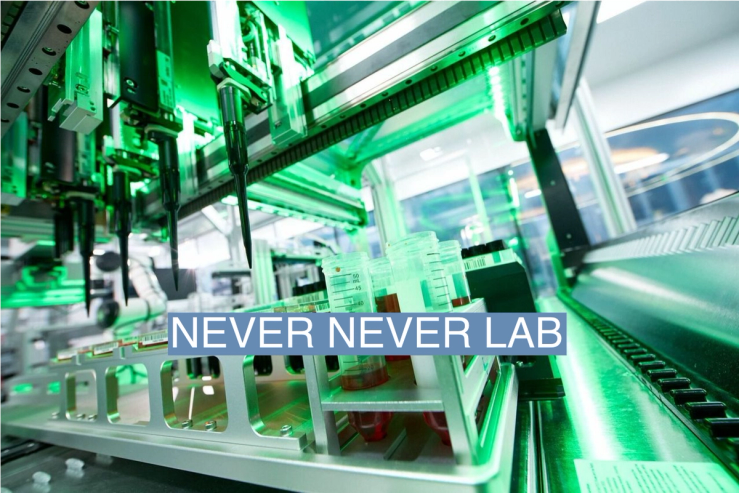The Scene
In 2019, Insilico Medicine CEO Alex Zhavoronkov hired a film crew to document his biotech firm’s death in case its bold bet on a new drug didn’t pan out.
He was about to go all in on a potential new treatment for idiopathic pulmonary fibrosis, a lung disease that usually affects the elderly. While a biotech firm going bust after making a bad bet is not unusual, this drug was unique: It had been discovered using artificial intelligence.
“I wanted to leave some kind of legacy,” Zhavoronkov told Semafor.
Insilico didn’t die and ended up being one of the early computational biology startups in a field that is now exploding, as several breakthroughs in AI speed up the pace of innovation in biotech.
On Tuesday, Zhavoronkov was in San Francisco for JPMorgan’s annual healthcare conference touting the company’s expanding group of drug candidates. The original one is now in phase II clinical trials, while AI has since been used to discover promising treatments for breast cancer and other diseases.
Insilico, which has a robotic lab outside of Shanghai, first focused on diseases associated with aging. While Zhavoronkov believes AI can create hyper-targeted drugs to treat ailments one day, he also thinks the technology will be able to help inhibit cells associated with aging, extending human life, even in otherwise healthy patients.
Know More
Ahead of its time in many ways, Insilico has also embraced more recent breakthroughs like AlphaFold, a project created by Google-owned DeepMind that used AI to predict the shape of proteins based on their amino acid sequences.
Petrina Kamya, Insilico’s global head of AI platforms, gave a demonstration Tuesday on how the company uses AlphaFold to essentially generate potential new drugs entirely on a computer the way one might prompt ChatGPT.
Once the computer spits out a particularly good candidate, the company uses outside firms, often in China, to produce and test it in a lab. The vast majority of the time, the tests fail. But just one success can mean millions or even billions in revenue.
Insilico has already earned tens of millions in licensing fees on its small molecule drug candidates aimed at breast cancer, inflammatory bowel disease, anemia of chronic kidney disease, and others. If those candidates advance further in the clinical trial process, it will earn much more.
Zhavoronkov has also been pitching Insilico’s technology to countries like the UAE, which he says could begin doing their own drug discovery targeting diseases specific to their populations.
The raw footage from 2019 is also still there, and Zhavoronkov has made it available to filmmakers in a “docuthon,” crowdsourcing the project, though it won’t be documenting the company’s death.
Reed’s view
At one point during our meeting, Zhavoronkov asked me how long I would like to live. I told him I’d be happy to make it to 90. He scoffed at that notion. I wasn’t being ambitious enough, he said.
Zhavoronkov’s view is that AI will enable so much precision that pills will be able to target the specific cells in our body that make us get older, and human lifespans will increase drastically.
Maybe it’s possible to change aging at the cellular level, and I’m sure it would be great for humanity if the number of years people live goes up. Anti-aging drugs are potentially more lucrative and would attract more investment because the kinds of people who gravitate toward that will inevitably have deep pockets. But it could also mean wealthy people live even longer than their less fortunate counterparts, further destabilizing society.
But anti-aging almost obscures the real potential impact of this technology to reduce human suffering, not just in wealthy countries but around the world. The idea that countries like the UAE or, say, nations in Africa, can set up their own biotech operations focused entirely on their own populations is a truly transformative concept.
If AI, robotics and other advances could reduce the cost of drug creation enough, we could one day see bespoke drugs for nearly every ailment.
Of course, there could be downsides. What happens when people start creating recreational drugs or marketing products completely outside of a regulatory framework that guarantees drug safety? Those are problems we’ll need to think about. But they are likely far off now, and the positives seem to far outweigh the negatives.
Room for Disagreement
One of the big fears from critics of AI is that the technology will allow the development of bio weapons by bad actors.
“We just want more researchers to acknowledge and be aware of potential misuse. When you start working in the chemistry space, you do get informed about misuse of chemistry, and you’re sort of responsible for making sure you avoid that as much as possible. In machine learning, there’s nothing of the sort. There’s no guidance on misuse of the technology,” said Fabio Urbina, the lead author of a paper on the subject in an interview with The Verge.
The View From China
China has played a big role in enabling drug research through its many contract research organizations, which can do the kind of testing that determines whether a drug created by AI works in the real world.
Those labs were already seeing a surge in business domestically. But now, with AI potentially democratizing the early stages of drug discovery, we could see more domestic drug creation from within China.
Notable
- This profile of Zhavoronkov includes a tour of the company’s robotic lab in China, made to feel like the Death Star, or as Zhavoronkov calls it, “The Life Star.”


